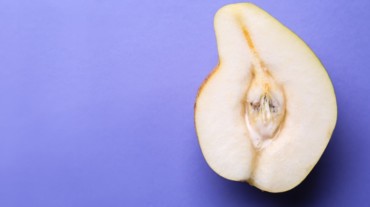Chat with ![]()

Chat with ![]()


A woman with a vagina deals with a whole lot of health-related issues throughout her life. And guess what? Vaginal dryness is the most common of them all. Ladies, we know how uncomfortable it can be to deal with. What’s even more unfortunate is the fact that it can cause more problems, if not treated.
Your vagina is a smart ass! Besides having a self-cleaning and self-regulating mechanism, it also has moisture-coated walls for protection and lubrication during intercourse. Many factors can cause this wall to become thinner or decrease its moisture content. Both of these can lead to vaginal dryness, characterised by a lot of discomfort down there.
Also, read: Here’s how coconut oil helped my case of vaginal dryness
“One may experience vaginal itching, burning, redness, discomfort, some kind of urinary symptoms like frequency of urination or urgency of urination or and even very difficult intercourse, painful intercourse, dyspareunia in case of vaginal dryness. So, once we know the reason for vaginal dryness, we can remove the cause and it will get better,” says Dr Aruna Kalra, director, obstetrics & gynaecology, CK Birla Hospital, Gurugram.
To know the reasons causing vaginal dryness, you have to read this:
One of the most common causes of vaginal dryness is a decrease in estrogen levels. But what can cause hormonal deficiency (low estrogen levels)? Dr Kalra says, “It can happen post-delivery, during breastfeeding. It can also happen to somebody who underwent radiotherapy or chemotherapy for some kind of cancer. Also, in those who are postmenopausal and menopausal after ovaries are removed surgically. Those are some causes behind hormonal deficiencies.”

Here’s how these factors can cause vaginal dryness:
Vaginal dryness can be a hormonal side effect of some birth control methods such as hormonal birth control pills that contain the hormones estrogen or progesterone. It happens because birth control pills lower women’s testosterone levels produced by ovaries, which leads to vaginal dryness.


“Some kinds of drugs also cause vaginal dryness. If you are taking anti-estrogen cream for uterine fibroids, for endometriosis, or if you are on anti-allergic drugs for a cold, you can experience vaginal dryness. Vaginal dryness can also be caused by many other drugs like antidepressants,” says Dr Kalra.
“For painful intercourse, the first thing to go for is enough foreplay. It will give you better natural lubrication but if you still go through vaginal dryness, whether it’s because of menopause and breastfeeding, use a water-based moisturiser. If that is not effective, use an estrogen cream. Estrogen creams are safe but there are some contraindications for estrogen creams,” explains Dr Kalra.

She adds, “If you have a history of breast cancer, uterine cancer, or any kind of abnormal vaginal bleeding, you should not use it. If you face side-effects like breast pain or other symptoms after using an estrogen cream, you should not use them. Otherwise, they’re safe if there are no contraindications.”
Also, read: Should you use a vaginal moisturiser to soothe dryness down there? A gynaecologist answers
“Initially, you’ve to use it every day, followed by once an alternate day and after 2-3 days,” she concludes.
Some other tips to manage vaginal dryness are:
So, as you know, vaginal dryness is mostly because of low estrogen content in your body and it can be corrected by simple measures. But contact your doctor, if vaginal dryness interferes with your daily activities or affects your sex life.